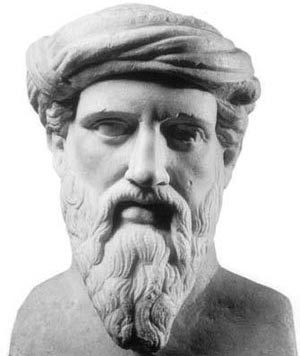Ancient Greeks lived across modern people
Ancient people have very low lifespans, but this is not true for Greeks. Their average life expectancy has reached a peak which was later only reached in the 20th century. Among the long-lived people were Pithagor mathematician, Sophocle writer, Platonic philosopher, physician Hyppocrate .
According to the natural logic of scientific development, human lifespan is continuous, extending from the Stone Age - when a 30-year-old can be considered an useless old man to the tribe - for to this day, when the average life expectancy in developed countries exceeds 80.
The argument about the regular increase in life expectancy may be true for Europe beginning in the Middle Ages, but Greece is not in that formula. In fact, the life expectancy of an infant is only 30 years, but that is mainly due to the high number of deaths among children. If the baby is stable up to 5 years old then it is more likely to live much longer. Experts have come to the conclusion that in ancient Greece, the average life expectancy reached peaks that could only be reached in the 20th century.

Pithagor in the imagination of posterity.
(Photo: Focusmag)
The ancient Greek celebrities almost lived long, for example Pithagor lived nearly 80 years old. Sophocle, the playwright, is nearly 90 years old. Hyppocrate, physician, life nearly 83 years old. In the famous long-life philosophers such as Gorgias 107, Democrit philosoph 90 years, Platon 80, Diogenes 89, Cléanthe 99 years old .
The concept of ancient Greeks about human age is in fact not different from modern conception. In the event of a war, all citizens under the age of 60 are called to enlist. The senator of the Sparte or the parliament in Athènes could only be a man over 60 years old. When Socrates was sentenced to death at age 70, he was not considered an elder. Sophocle wrote the last play at age 82.
So where is the secret of ' Greek miracle '? This has not been clarified so far. In the following centuries, life expectancy has decreased significantly despite no sudden changes in climate or eating: If the peoples of the Mediterranean region in the past mainly eat fish and fruits olives, litchi and grape wine, they continue to eat and drink today.
Perhaps the problem is that the ancient Greeks paid much attention to physical and mental hygiene, exercise and diet. ' Not eating too much ' is a popular slogan. Later, the culture of that healthy lifestyle has lost much.
In addition, there are further explanations: Archaeologists and anthropologists often misjudge the age of the ancient people excavated by relying on the found remains. For example, in the 1950s, it was found that the remains of the Maja tribal king Hanar Pacan lived in the 7th century. After studying the remains, anthropologists said that this person almost 40 years old. Only three decades later, when the hieroglyphics of the Maja tribe were deciphered, the words written on the grave were read. It turned out, Hanar Pacan lived to 80 years old.
British archaeologist Mark Ponlare said that modern methods to determine the age based on the bones sometimes shorten life to two or thirty years. We may be underestimating the lifespan of the ancient people because the written data about them does not exist.
- Knowing how the ancient Greeks lived
- Nude playing sports like the ancient Greeks, people will compete more effectively
- Ancient Greeks ever set foot in Canada?
- Detecting modern human individual fossils 40,000 years old
- Admire the theater masterpiece of the ancient Greeks
- The ancient Greeks believed the dead body could live up to the grave
- Nudity in ancient Greek art
- Ancient people have known how to use calendars since ancient times
- Indonesia's ancient dwarf was wiped out by human ancestors?
- Discovered 8,000-year-old ancient gum
- People lived in the Thames River 9000 years ago
- Discover common ancestors of modern people and extinct people
 'Fine laughs' - Scary and painful torture in ancient times
'Fine laughs' - Scary and painful torture in ancient times The sequence of numbers 142857 of the Egyptian pyramids is known as the strangest number in the world - Why?
The sequence of numbers 142857 of the Egyptian pyramids is known as the strangest number in the world - Why? History of the iron
History of the iron What is alum?
What is alum?